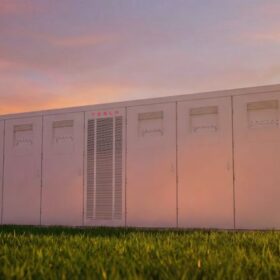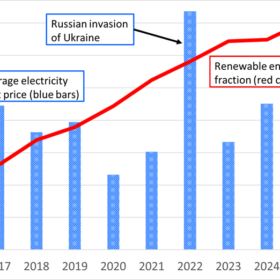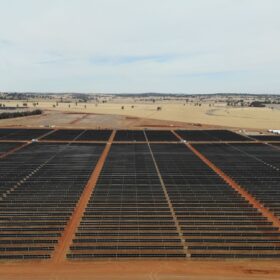The delays are feeding uncertainty about the future of South Australia’s Torrens Island B gas-fired power station which owner AGL previously said would close in 2026, but which may be extended if the interconnector to New South Wales is not completed in time to ensure reliable energy supply to South Australia.
AGL wrote to Torrens workers on Friday 15 August saying they had a non-binding agreement with the South Australian Government for an extension, and that they had issued the South Australian Government with an ultimatum to commit to the extension by 30 September.
Materials circulated by AEMO make clear such an extension would bridge a reliability gap created by the closure of Torrens Island B prior to the completion of Project EnergyConnect (Stage2).
The interconnector project has been delayed by more than a year and is now projected for completion in 2027. In March lead contractor Elecnor was ruled to have breached the Fair Work Act by denying migrant workers supplied under a labour hire agreement the right to speak to union officials about their wages and conditions.
The project is funded in part by taxpayers with $50 million (USD 32 million) from each of the Federal and South Australian governments, and a $295 million debt facility from ARENA.
ETU National Secretary Michael Wright said companies spending public money should train local electrical workers to deliver the transition.
“Australia’s economic future depends on energy transition.” Mr Wright said. “Energy transition depends on the hiring and training of skilled electrical professionals.”
“Right now we have a critical infrastructure project more than a year past schedule, that illegally kept migrant workers from speaking to their union, and has trained a total of zero apprentices despite taking $400 million of taxpayers’ money.
“This has led to a situation where energy workers in South Australia have been told they no longer have a job, then have been told they might have a job, and it’s causing significant distress for people who are trying to plan their future.
“There should be mandatory apprentice training on all projects spending public money. We also need to support them with the mentoring that they deserve and, frankly, that we are already paying for.”
“This way we can train energy workers to deliver transition, and secure certainty for people and communities about where the work is, when it will start, and when it will end, so they can plan a future for themselves and their families.”






By submitting this form you agree to pv magazine using your data for the purposes of publishing your comment.
Your personal data will only be disclosed or otherwise transmitted to third parties for the purposes of spam filtering or if this is necessary for technical maintenance of the website. Any other transfer to third parties will not take place unless this is justified on the basis of applicable data protection regulations or if pv magazine is legally obliged to do so.
You may revoke this consent at any time with effect for the future, in which case your personal data will be deleted immediately. Otherwise, your data will be deleted if pv magazine has processed your request or the purpose of data storage is fulfilled.
Further information on data privacy can be found in our Data Protection Policy.